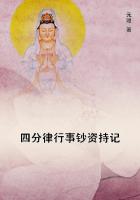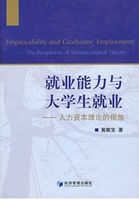must be capable of reciprocal contact: and the same is true of any two things, of which one 'acts' and the other 'suffers action' in the proper sense of the terms. For this reason we must treat of 'contact' first. every term which possesses a variety of meaning includes those various meanings either owing to a mere coincidence of language, or owing to a real order of derivation in the different things to which it is applied: but, though this may be taken to hold of 'contact' as of all such terms, it is nevertheless true that contact' in the proper sense applies only to things which have 'position'. And 'position' belongs only to those things which also have a Place': for in so far as we attribute 'contact' to the mathematical things, we must also attribute 'place' to them, whether they exist in separation or in some other fashion. Assuming, therefore, that 'to touch' is-as we have defined it in a previous work'-'to have the extremes together', only those things will touch one another which, being separate magnitudes and possessing position, have their extremes 'together'. And since position belongs only to those things which also have a 'place', while the primary differentiation of 'place' is the above' and 'the below' (and the similar pairs of opposites), all things which touch one another will have 'weight' or 'lightness' either both these qualities or one or the other of them. But bodies which are heavy or light are such as to 'act' and 'suffer action'. Hence it is clear that those things are by nature such as to touch one another, which (being separate magnitudes) have their extremes 'together' and are able to move, and be moved by, one another.
The manner in which the 'mover' moves the moved' not always the same: on the contrary, whereas one kind of 'mover' can only impart motion by being itself moved, another kind can do so though remaining itself unmoved. Clearly therefore we must recognize a corresponding variety in speaking of the 'acting' thing too: for the 'mover' is said to 'act' (in a sense) and the 'acting' thing to 'impart motion'. Nevertheless there is a difference and we must draw a distinction. For not every 'mover' can 'act', if (a) the term 'agent' is to be used in contrast to 'patient' and (b) 'patient' is to be applied only to those things whose motion is a 'qualitative affection'-i.e. a quality, like white' or 'hot', in respect to which they are moved' only in the sense that they are 'altered': on the contrary, to 'impart motion' is a wider term than to 'act'. Still, so much, at any rate, is clear: the things which are 'such as to impart motion', if that description be interpreted in one sense, will touch the things which are 'such as to be moved by them'-while they will not touch them, if the description be interpreted in a different sense. But the disjunctive definition of 'touching' must include and distinguish (a) 'contact in general' as the relation between two things which, having position, are such that one is able to impart motion and the other to be moved, and (b) 'reciprocal contact' as the relation between two things, one able to impart motion and the other able to be moved in such a way that 'action and passion'
are predicable of them.
As a rule, no doubt, if A touches B, B touches A. For indeed practically all the 'movers' within our ordinary experience impart motion by being moved: in their case, what touches inevitably must, and also evidently does, touch something which reciprocally touches it. Yet, if A moves B, it is possible-as we sometimes express it-for A'merely to touch' B, and that which touches need not touch a something which touches it. Nevertheless it is commonly supposed that 'touching'
must be reciprocal. The reason of this belief is that 'movers' which belong to the same kind as the 'moved' impart motion by being moved.
Hence if anything imparts motion without itself being moved, it may touch the 'moved' and yet itself be touched by nothing-for we say sometimes that the man who grieves us 'touches' us, but not that we 'touch' him.
The account just given may serve to distinguish and define the 'contact' which occurs in the things of Nature.















